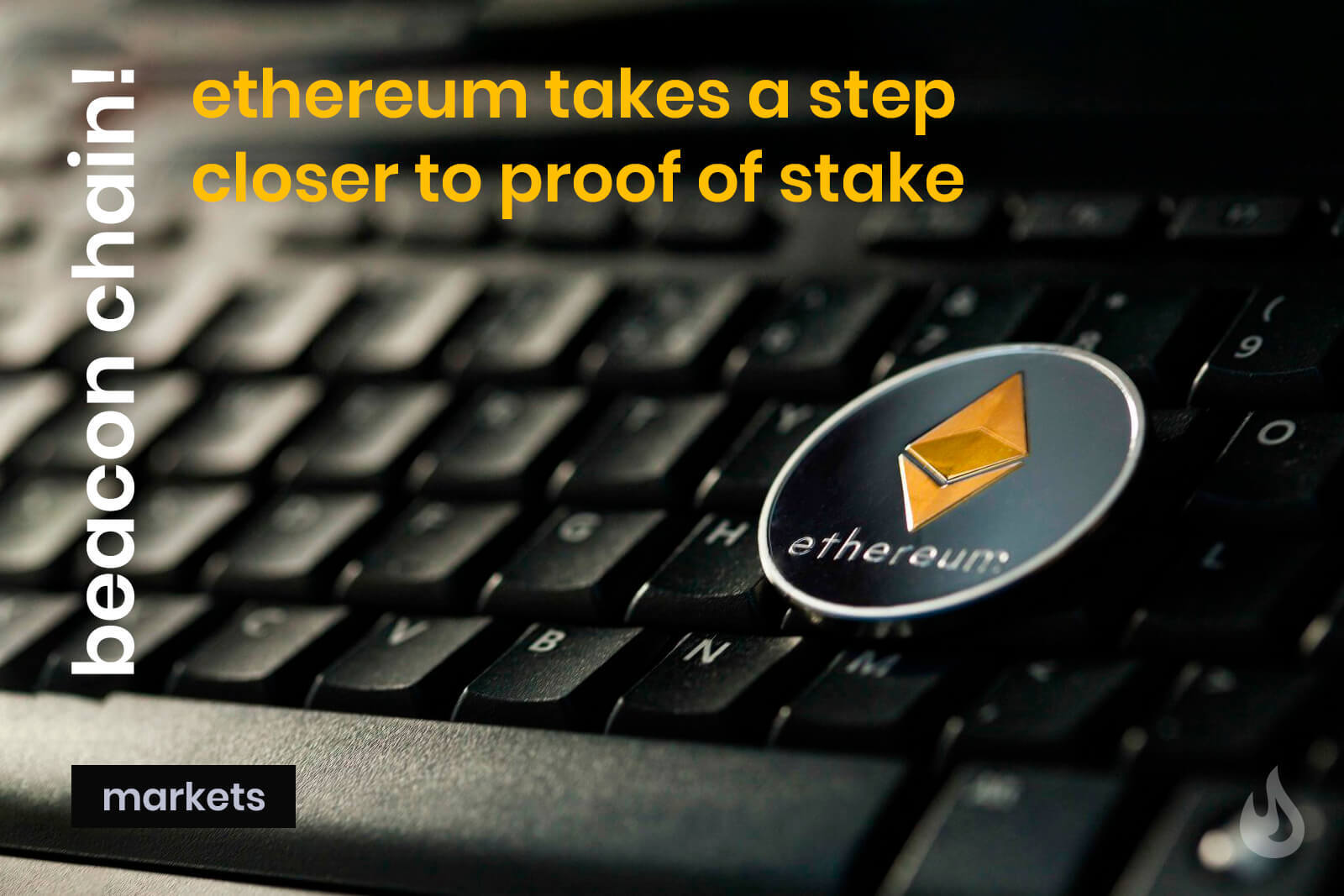
- Ethereum 2.0 would move the second-largest cryptocurrency to a proof-of-stake network from its current proof-of-work.
- Ethereum’s movement to proof-of-stake has been slowed by complexity in the original blockchain design.
- A network developer has proposed a solution that could make the transition quicker.
When Ethereum launched in 2015, the project was based on the proof-of-work algorithm. This allows the nodes of the network to agree on the state of all information recorded on the Ethereum blockchain and prevents certain kinds of economic attacks.
With proof-of-work rapidly being replaced by proof-of-stake, developers on the Ethereum 2.0 network are anxious to get their proof-of-stake network up and running soon. The actualization of their wishes is now closer than it was in the past.
Ethereum 2.0
While Ethereum has grown to be the second-largest cryptocurrency, its network is not without drawbacks. Running on proof-of-work uses more energy than other blockchains. The number of transactions processed per second is also much slower, while fees are much higher.
Sponsored
Switching to the proof-of-stake blockchain is expected to cure some of these challenges while hypothetically doing away with the big expensive mining rigs required to mine ETH. The upgrade all falls into the program Ethereum 2.0.
Beacon Chain! Closer Than We Once Were
There has never been any fixed date for the launch of Ethereum 2.0. We are currently in phase 0, also known as the “beacon chain.” The chain will help coordinate block creation and rewards in the Eth2 network.
While users are stuck with proof-of-work, the future proof-of-stake network is being tested in parallel but without any products or services.
Sponsored
Mikhail Kalinin, of Ethereum 2.0 software client Teku, has proposed an “executable beacon chain,” which would get rid of some of the complexity of the original design.
Kalinin proceeded to post a pull request on GitHub that developers can contribute to in order to implement the proposal.
On the Flipside
- Crypto project Binance Chain (BSC) has had $31 million hacked from its network.
- Their website, Twitter account, and Telegram channel are all down, suggesting a rug pull by creators.
- The hackers are using DeFi avenues to move the stolen tokens.
The founder of Ethereum, Vitalik Buterin, expressed a desire to move the merger of the two networks (the current proof-of-work network and the parallel beacon chain) faster or to explore opportunities to do this.
He further notes that he is currently working with Mikhail Kalinin on the technical specifications of the network. However, a quicker launch of the mainnet may mean that certain features are dropped, one of which could be validator withdrawals.
On the Ethereum network, validator withdrawals refer to pulling funds out of the network. So, delaying the integration of validator withdrawals would keep people’s ETH locked up in the Ethereum 2.0 contract until developers decide to add the feature.
Vitalik Buterin, however, declined to speculate about when the upgrade would be completed. He, however, indicated that it “should, in general, allow us to ship faster and safer.” The Ethereum Foundation has estimated that the merger will be completed in 2022 in phase 1.5 of the roadmap.
Ethereum Vs. The Competition
While Ethereum is still searching for a way into proof-of-stake, competitors like Polkadot, Cardano, and Solana are fully running on their PoS networks and looking to take a share in the DeFi market.
Developers on the Ethereum network who are unwilling to pay a $20 fee to bid on an NFT auction or $10 to trade tokens are now looking at alternatives in Ethereum Killers.
